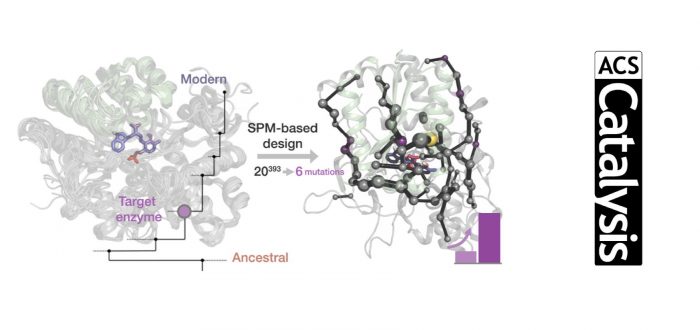The journal Dalton Transaction features on its front cover the recently published research article “Catalysis of CO2 reduction by diazapyridinophane complexes of Fe, Co, and Ni: CO2 binding triggered by combined frontier MO associations involving a SOMO”, a collaboration between Kyushu University and IQCC. The previous study on the photochemical CO2 reduction into CO catalyzed by the
- sec.iqcc@udg.edu
- +34 972 41 83 57
Month: November 2021
Recently Giorgio Olivo, a former IQCC member, started his independent career as an Assistant Professor in Organic Chemistry at “La Sapienza” university of Rome, Italy, in the Department of Chemistry. Giorgio was a post-doctoral fellow (two as a Juan de la Cierva fellow) at IQCC for five years (2016-2020), working in the QBIS-Cat group with
The journal ChemElectroChem features on its front cover the recently published research article “The Dual Effect of Coordinating -NH Groups and Light in the Electrochemical CO2 Reduction with Pyridylamino Co Complexes”, a collaboration between ICIQ and IQCC. CO2 electroreduction could be improved by applying conceptualized strategies to overcome catalytic bottlenecks. In this regard, we report
Next Friday (3rd of December 11.30h, virtual) will be the defense of the doctoral thesis of Marco Cianfanelli, titled “Carboxylic Acids as Directing Groups for Intramolecular Catalytic Oxidation of Unactivated C(sp3)-H bonds with Bioinspired Catalysts”, supervised by Miquel Costas and Xavi Ribas from IQCC. If you want to follow the online defense, please send an email
In the oriented external electric field-driven catalysis, the reaction rates and the selectivity of chemical reactions can be tuned at will. The activation barriers of chemical reactions within external electric fields of several strengths and directions can be computationally modelled. However, the calculation of all the required field-dependent transition states and reactants is computationally demanding,
Every year in November, the IQCC is organizing together with the Scientific Culture and Digital Communication (C4D) unit of the UdG some activities for Science Week with the aim to bring our science closer to the Girona general public. Last Thursday, November 18, 2021, the Diada de Sant Albert took place at Science Faculty of
Last Thursday, the IQCC organized the second edition of the IndustryQCC Forum with five national and international companies (Johnson & Johnson Innovation, NBD Nostrum Biodiscovery, Institute of Agrifood Research and Technology, Huntsman and Software for Chemistry & Materials) during the Science Week. The IndustryQCC Forums provide young (and more advanced) researchers of IQCC the opportunity
Allostery is a central mechanism for the regulation of multi-enzyme complexes. The mechanistic basis that drives allosteric regulation is poorly understood but harbors key information for enzyme engineering. In the present study, we focus on the tryptophan synthase complex that is composed of TrpA and TrpB subunits, which allosterically activate each other. Specifically, we develop
The IQCC started a new series of online talks to address challenges in the research fields where the IQCC is playing a role, through the investigations of one of the Principal Investigators. An external expert is invited to give a seminar, together with one of the junior researchers of the IQCC. These complementary views will highlight the current state-of-the-art
Modulation of a mu-1,2-Peroxo Dicopper(II) Intermediate by Strong Interaction with Alkali Metal Ions
The properties of metal/dioxygen species, key intermediates in oxidation catalysis, can be modulated by interaction with redox-inactive Lewis acids, but structural information about these adducts is scarce. Here we demonstrate that even mildly Lewis acidic alkali metal ions, which are typically viewed as innocent “spectators”, bind strongly to a reactive cis-peroxo dicopper(II) intermediates. Unprecedented structural










